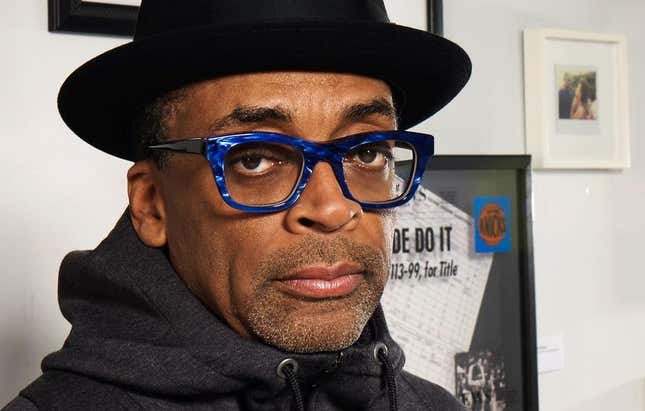
Netflix is building up an Avengers style roster of Black talent. Fresh off announcements that the streaming giant has deals with Halle Berry and Megan Thee Stallion, now it has signed a multiyear partnership with filmmaking legend Spilke Lee.
Beginning in January, the deal will see Lee direct and produce feature films, as well as have the streamer invest in new talent.
“There Is No Better Way For Me And My Company 40Acres And A Mule Filmworks To Begin The New Year Than Renew Our Partnership With Ted, Scott And Tendo-Da Fearless Leaders Of NETFLIX,” Lee said in a statement. “Besides My Joints, We Together Will Focus On The New Diverse Storytellers, YOUTH MUST BE SERVED. And Dat’s Da Truth, Ruth. YA-DIG? SHO-NUFF”
The Academy Award® winner and the network have previously collaborated with Lee writing and directing Da 5 Bloods, writing and directing the She’s Gotta Have It series, directing Rodney King and producing See You Yesterday.
“Throughout Spike’s incredible career, his writing and directing have remained searing and insightful about our times, while still being incredibly entertaining,” said Scott Stuber, Head of Global Film. “We’re privileged to enter this new partnership with Spike and look forward to bringing the next chapter of films from Brooklyn’s very own to the world.”
As previously reported by The Root, Megan Thee Stallion signed an exclusive first look deal with Netflix to executive produce series and projects at the network.
Following the success of her directorial debut Bruised, Halle Berry recently signed a multi-picture deal to star in and produce movies with Netflix.
Look, you don’t need us to list off all Spike Lee’s amazing films. Having a filmmaker with his legacy and stature commit to working with a streamer is a major move in the industry.
Yes, we’ve seen big name directors partner with streaming networks for one movie, or because theaters are closed and they don’t have a choice, but a multiyear deal like this could signal a shift.
As usual, Lee is ahead of his time, and we’ll be wondering why other filmmakers didn’t get more invested in streaming sooner.

